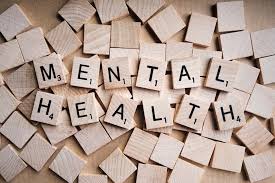The company I work for now have Mental Health Care First Aiders and I have put my name forward to be one. Two recent quotes from Twitter:
“More and more schoolchildren are struggling to cope with their mental health. We are launching our new #MakeItCount campaign, because mental health is not extracurricular”
“More unequal societies have a wider gap between the richest and poorest. That leads to worse mental health for everyone in that society.”
It really scares me how many people struggle with low self esteem and how often that is associated with their weight and how they look upon their own bodies. Please remember that you are loved and were created to be YOU. No one in the world is more qualified at being you than YOU. No one can be!
So this week’s song I chose for two reasons YOU are important and Bohemian Rhapsody, telling the story of Freddy Mercury, opens at the Cinema this week. What a reason to go and indulge yourself in a “good-feel” film. I have been told I must go and see this on my own, since no-one else will enjoy my singing … we will see.
Can anybody find me somebody to love
Ooh, each morning I get up I die a little
Can barely stand on my feet
(Take a look at yourself) Take a look in the mirror and cry (and cry)
Lord what you're doing to me (yeah yeah)
I have spent all my years in believing you
But I just can't get no relief, Lord!
Somebody (somebody) ooh somebody (somebody)
Can anybody find me somebody to love?
I work hard (he works hard) every day of my life
I work till I ache in my bones
At the end (at the end of the day)
I take home my hard earned pay all on my own
I get down (down) on my knees (knees)
And I start to pray
Till the tears run down from my eyes
Lord somebody (somebody), ooh somebody
(Please) can anybody find me somebody to love?
Everyday (everyday) I try and I try and I try
But everybody wants to put me down
They say I'm going crazy
They say I got a lot of water in my brain
Ah, got no common sense
I got nobody left to believe in
Yeah yeah yeah yeah
Oh Lord
Ooh somebody, ooh somebody
Can anybody find me somebody to love?
(Can anybody find me someone to love)
Got no feel, I got no rhythm
I just keep losing my beat (you just keep losing and losing)
I'm OK, I'm alright (he's alright, he's alright)
I ain't gonna face no defeat (yeah yeah)
I just gotta get out of this prison cell
One day (someday) I'm gonna be free, Lord!
Find me somebody to love
Find me somebody to love
Please do love yourselves … what you eat and how you look is secondary. You are still loved, irrespective.
Have a great week.

